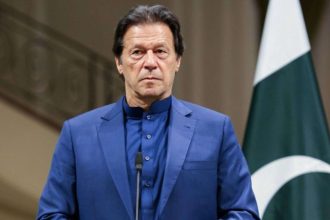In a significant turn of events, Syria’s Islamist rebels have declared the ousting of President Bashar al-Assad after taking over Damascus this Sunday. This marks the end of the Assad family’s long-standing autocratic rule after a 13-year civil war, prompting Assad to flee the country.
The rebels claimed they entered the capital without encountering military resistance, and witnesses observed thousands celebrating their newfound freedom in Damascus, signalling an end to over fifty years under the Assad regime.
According to reports from Russia’s TASS and Ria Novosti news agencies, Assad and his family have found asylum in Moscow. Earlier, Moscow confirmed that Assad had resigned and left Syria with his family, directing a peaceful transfer of power.
Ousted Syrian leader Assad flees to Moscow after fall of Damascus, Russian state media say https://t.co/p5liXG0bcg
— CTV News Calgary (@CTVCalgary) December 9, 2024The swift changes have taken Arab capitals by surprise and stirred fears of further instability in a region still recovering from recent conflicts.
This event not only signifies a dramatic end to five decades of Baath party dominance but also severely weakens the influence of Russia and Iran in Syria.
The Syrian military did not state Assad’s departure. However, Syria’s Prime Minister Mohammed al-Jalali expressed readiness to work with any leadership the Syrian people chose.
Rami Abdel Rahman from the Syrian Observatory for Human Rights reported that Assad left via Damascus airport before the army security withdrew. This report comes shortly after the Islamist group Hayat Tahrir al-Sham (HTS) challenged his authority.
The rebels celebrated the liberation of prisoners and the end of Baath rule on Telegram, marking the beginning of a new era in Syria. Shortly after their victory in Homs, they announced a curfew in Damascus until early Monday morning.
Despite being designated a terrorist organization by Western governments, HTS has attempted to moderate its image in recent years. Following their takeover, their leader visited a significant mosque in Damascus, where he was warmly received.
International reactions have been varied. UN war crimes investigators and Amnesty International see this as a pivotal moment for Syria. World leaders are pledging to support Syria’s path to stability, and the global community is closely monitoring the situation, hoping for a peaceful transition.






